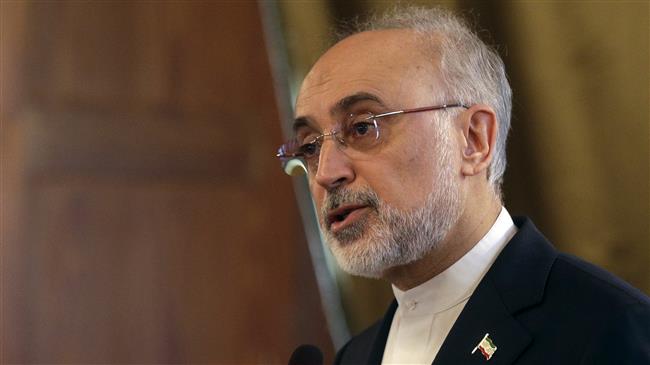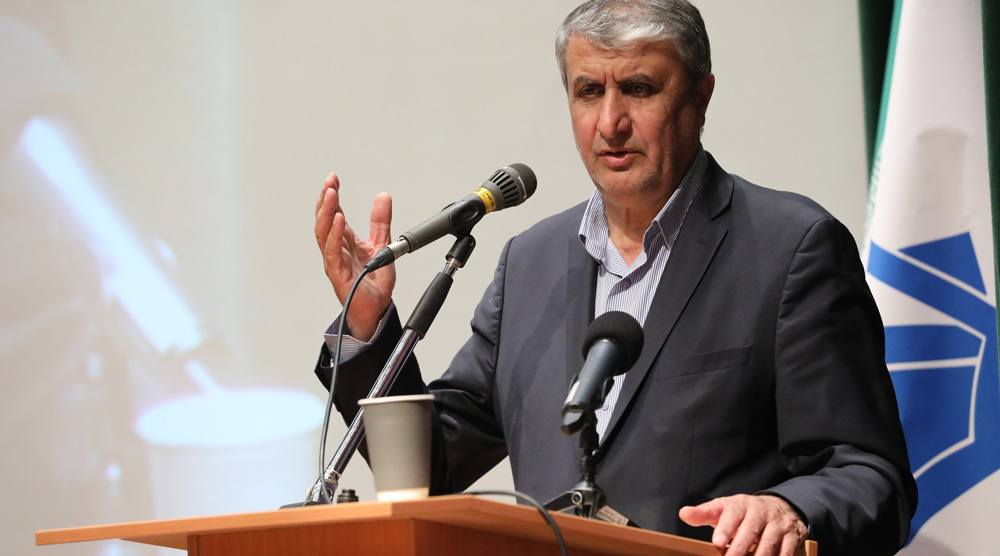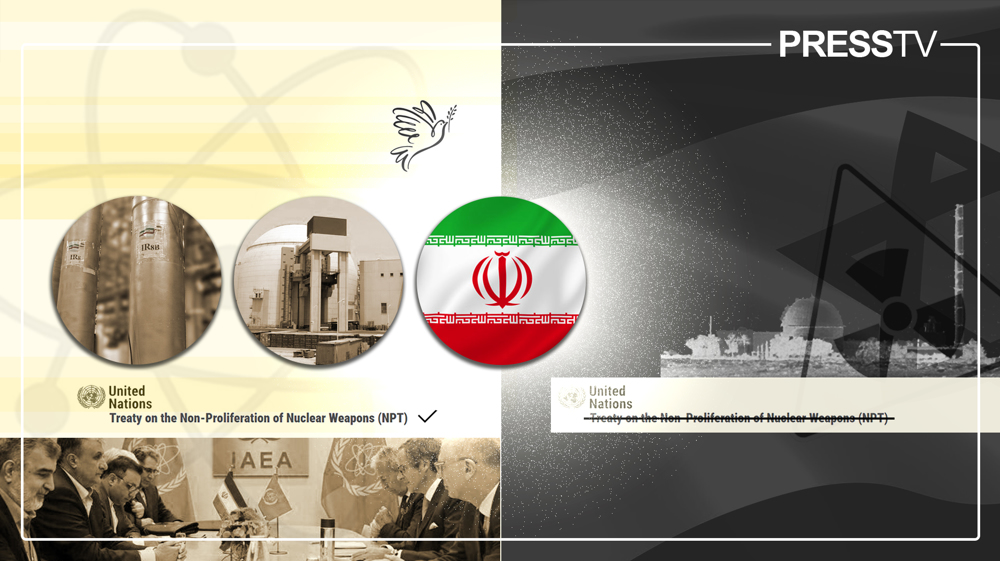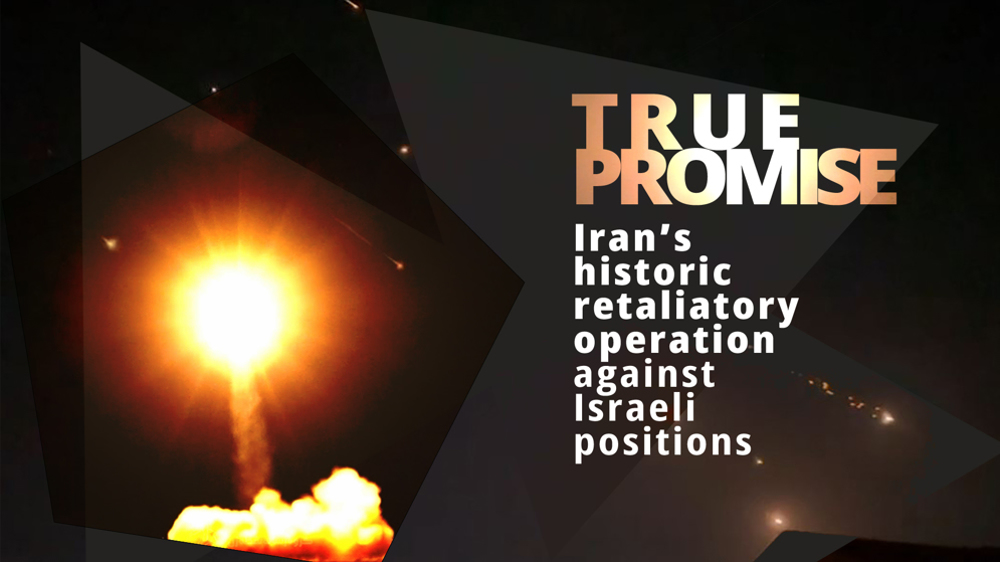Iran to return to pre-JCPOA conditions if nuclear deal fails: AEOI
Head of the Atomic Energy Organization of Iran (AEOI) Ali Akbar Salehi says the country has enough technical know-how to return to conditions it had before signing a nuclear deal with the P5+1 group of countries in 2015.
“In terms of nuclear science, Iran has reached a level that if we fail to fulfill those promises that we gave to people upon signing the JCPOA (the nuclear agreement, officially known as the Joint Comprehensive Plan of Action), we will return to the past [conditions] and [even] a much better level [of the nuclear activities],” Salehi told reporters on Monday.
"If we are saying that we are fully prepared to return to a level much higher than the past in the nuclear field, we are speaking based on realities," he added.
Iran and the five permanent members of the United Nations Security Council – the United States, France, Britain, Russia and China – plus Germany signed the nuclear agreement on July 14, 2015 and started implementing it on January 16, 2016.
Under the JCPOA, Iran undertook to put limits on its nuclear program in exchange for the removal of nuclear-related sanctions imposed against Tehran.
However, US President Donald Trump is a stern critic of the nuclear deal, reached under his predecessor Barack Obama, and has repeatedly warned that he might ultimately terminate the agreement.
The US president on January 12 reluctantly agreed to waive sanctions against Iran that were lifted as part of the landmark deal, but threatened to withdraw from the accord if some "disastrous flaws" were not fixed.
He said he wanted America's European allies to use the 120-day period before sanctions relief again came up for renewal to agree to tougher measures and new conditions; otherwise Washington would pull out of the deal.
Elsewhere in his remarks, Salehi warned Trump against taking this course and expressed hope that the US president would come to his senses and refrain from causing problems not only for himself but also for others.
He further stated that Iran's nuclear propulsion project was being implemented in a suitable manner, adding, "However, it must be taken into account that this is a long-term project."
The AEOI head noted that only six countries, including the five permanent members of the UN Security Council and India, currently possessed the nuclear propulsion system, saying that India succeeded in gaining the technology after many years with Russia's help.
In its report on February, the International Atomic Energy Agency (IAEA) once again confirmed that Iran was living up to its commitments under the JCPOA and said that the country had informed the UN nuclear agency of a decision "to construct naval nuclear propulsion in future” and the agency had requested “further clarifications and amplifications."
It added that the Islamic Republic was sticking to the deal's key parameters such as the number of uranium centrifuges and stockpiles.
On April 21, the Iranian nuclear chief said the Islamic Republic's response readiness would "startle" the United States should it decided to pull out of the JCPOA.
Salehi once again reaffirmed Tehran's capability to resume enriching uranium to the 20-percent level in four days in response to a possible US withdrawal from the nuclear deal.
Read more:
200 days of Israeli war on Gaza and 200 headlines whitewashing genocide
Iran’s security chief in Russia to underline Israel’s aggression
VIDEO | Smoke rises from Gaza as fighting continues
ICRC decries escalating Israeli raids across occupied West Bank
Israel still prevents food convoys from reaching north of Gaza: UNRWA
NYPD arrests multitude of pro-Palestine students at NYU campus
Iran’s decisive response to Israel disrupted enemy’s equations: Hamas
Iran releases details of confiscated Israeli transit cargo












 This makes it easy to access the Press TV website
This makes it easy to access the Press TV website